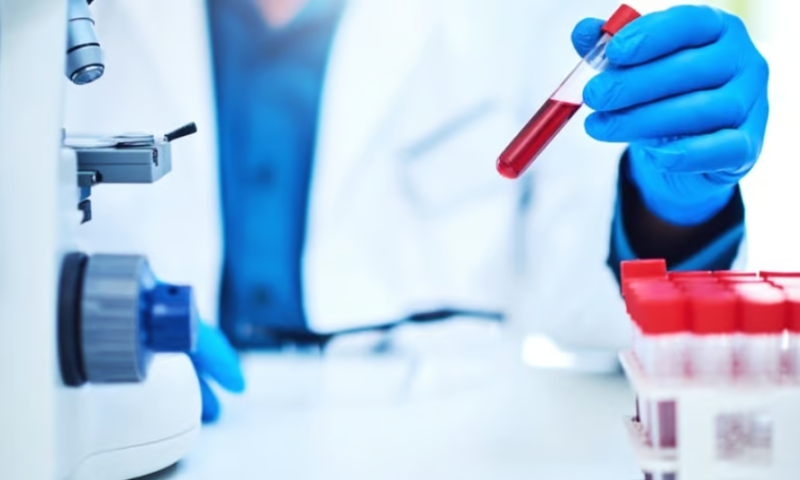As Eli Lilly inches ever closer to the finish line in its yearslong mission to bring an Alzheimer’s disease drug to the market, the company has picked up a side quest.
The Big Pharma is joining forces with Roche’s diagnostics arm to help develop the latter’s Elecsys Amyloid Plasma Panel (EAPP). The EAPP is a blood test that could help doctors reach definitive diagnoses of Alzheimer’s and therefore begin treatment earlier in the disease’s progression—ideally, well ahead of the 2.8 years after symptom onset that marks the current diagnosis point for the average patient.
“Today, over 55 million people are living with dementia, and this is projected to increase to nearly 140 million by 2050. Collaboration is essential to ensure these people receive a timely and accurate diagnosis,” Roche Diagnostics CEO Matt Sause said in Wednesday’s announcement.
Financial terms of the deal weren’t disclosed.
The EAPP test looks for two biomarkers in the plasma that have been linked to Alzheimer’s disease: the phosphorylated Tau (pTau) 181 protein—which has been found to build up in the early stages of the disease—and apolipoprotein (APOE) E4, the most common genetic risk factor for Alzheimer’s.
The blood test isn’t meant to be used as a standalone diagnostic, but Roche has suggested that it could help winnow out the most likely patients for further confirmatory testing. A negative result for both biomarkers would indicate that a patient is likely amyloid-negative, meaning any cognitive decline they’re experiencing stems from a condition other than Alzheimer’s, according to the company.
The test has already received the FDA’s breakthrough-device designation. When the company announced the designation last July, Roche noted that EAPP is the first blood-based biomarker test for Alzheimer’s to receive the tag. So far, other tests recognized or cleared by the FDA have largely relied on samples of cerebrospinal fluid.
Though Roche has already put in much of the groundwork in developing EAPP, it tapped Lilly to help push it through the final stages of testing, leading up to an FDA review optimistically planned for 2025, Bruce Jordan, Ph.D., head of Roche Diagnostics’ personalized healthcare solutions, told Reuters.
Roche is planning to launch a two-year trial studying the test’s performance in several hundred people with early signs of dementia. That’s a particularly unwieldy task, according to Jordan, since it’s unclear how many individuals who voluntarily approach their doctor to discuss cognitive decline actually have Alzheimer’s. This makes it difficult to know how many people must be recruited to the study to prove the test’s sensitivity.
“We acknowledge that this is something that a single entity does not have the best chance of solving on its own, so we partnered up with Lilly,” Jordan told Reuters.

